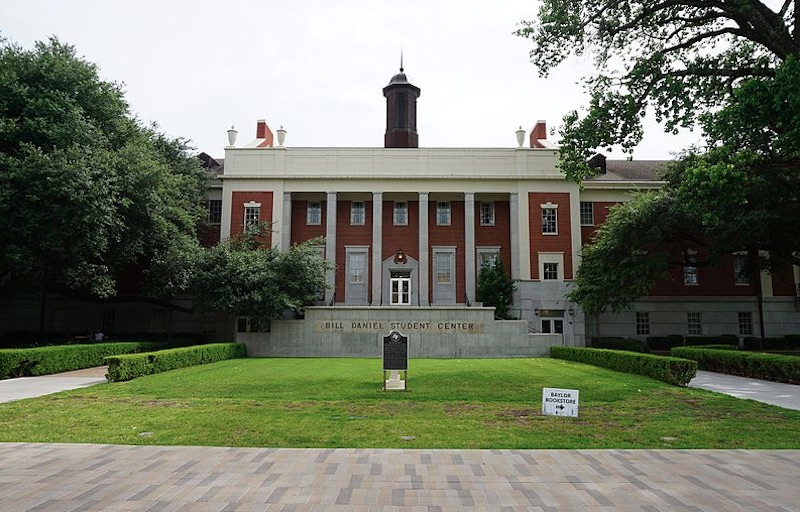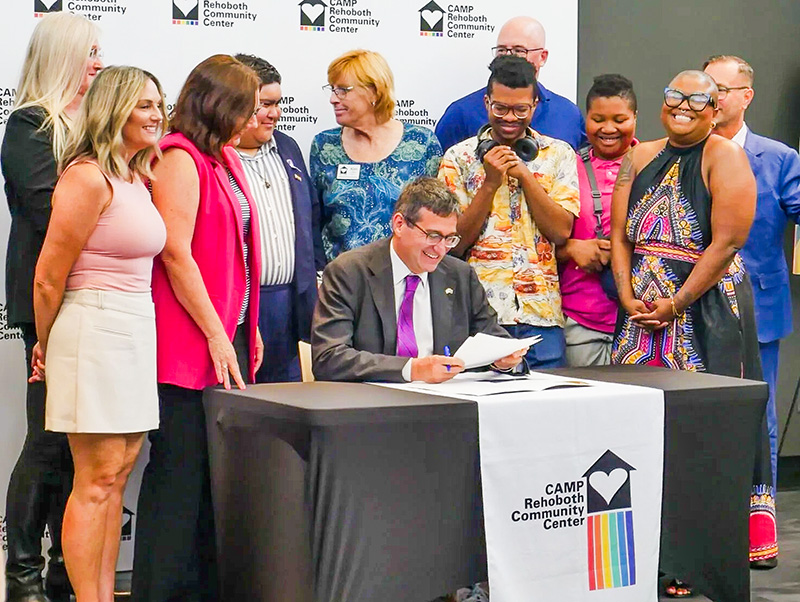South Carolina Lawmakers Approve Anti-Trans Health Care Provision
House and Senate lawmakers approved amendment in conference as part of ongoing negotiations over state budget.

South Carolina lawmakers approved a provision in the proposed state budget that attacks gender-affirming care for transgender youth, but rejected two other anti-LGBTQ amendments.
Last week, the South Carolina Budget Conference Committee met to discuss points of disagreement on the budget, and are continuing to hammer out compromises between the House and Senate versions of the budget this week.
During last week’s negotiations, the conference committee adopted a provision that prohibits state funds allocated to the Pediatric Transgender Clinic at the Medical University of South Carolina from being used to pay for transgender-affirming health care procedures for people under the age of 16. The provision does not prevent the clinic from providing medically necessary treatment so long as it is unrelated to gender transition, and does not prevent the clinic from offering mental health services to transgender youth.
The adoption of the provision comes just a month after Gov. Henry McMaster signed a bill barring transgender athletes from competing on sports teams that match their gender identity. Lawmakers previously passed another bill, which would grant medical providers and insurance companies the right to refuse to provide any treatments that would violate their religious, moral, ethical, or philosophical beliefs. McMaster is expected to sign that bill into law in the coming weeks.
“South Carolina lawmakers again chose to pick on transgender youth, this time by trying to insert politics into decisions that should be between transgender young people, their guardians, and their medical providers,” Melissa Moore, a leader in the SC United for Justice & Equality coalition and the Lowcountry manager for WREN: Women’s Rights & Empowerment Network, said in a statement.
“We condemn this attack and send a message of love and support to every transgender person in our state,” Moore added. “It is important to note that this proviso does not prohibit transgender youth in South Carolina from accessing trans-affirming care — trans young people should continue to consult with providers across the state, including at [Medical University of South Carolina] to access the care they need and deserve.”
During conference, lawmakers also considered two other amendments, which were rejected, but may emerge during a future legislative session as standalone bills.
The first rejected provision was an amendment that would have placed restrictions on curriculum in schools by barring any discussion of LGBTQ-related issues in grades K-3, and in later grades only when material is “age-appropriate and developmentally appropriate” for students.
Under the amendment, schools that did not aid by this provision could have seen one percent of any funds that had been allocated to the school under the 2005 Student Health and Fitness Act withheld until they complied. The amendment’s language was nearly identical to that contained in Florida’s so-called “Don’t Say Gay” law, which Republican lawmakers in several states have sought to copy in order to “protect” children from being exposed to LGBTQ topics too early in life, and which opponents say simply targets LGBTQ kids for discrimination.
The other rejected amendment would have limited county public libraries from carrying LGBTQ-related books by requiring them to certify to the state that they do not offer “any books or materials that appeal to the prurient interest of children under the age of 13 in children’s book sections of libraries and are only made available with explicit parental consent.”
“Thankfully, the committee rejected two other amendments that would have singles out LGBTQ+ youth for discrimination, ensuring that South Carolina will not follow in the footsteps of states like Florida that have chosen to create unsafe, unwelcoming school communities,” Domenico Ruggerio, the executive director of the Charleston-based LGBTQ organization We Are Family, said in a statement. “There remains significant work ahead of us to protect LGBTQ+ youth in school and beyond, but it’s a relief that this year we will not be forced to grapple with broad curriculum censorship policies or a regressive library book ban.”
Support Metro Weekly’s Journalism
These are challenging times for news organizations. And yet it’s crucial we stay active and provide vital resources and information to both our local readers and the world. So won’t you please take a moment and consider supporting Metro Weekly with a membership? For as little as $5 a month, you can help ensure Metro Weekly magazine and MetroWeekly.com remain free, viable resources as we provide the best, most diverse, culturally-resonant LGBTQ coverage in both the D.C. region and around the world. Memberships come with exclusive perks and discounts, your own personal digital delivery of each week’s magazine (and an archive), access to our Member's Lounge when it launches this fall, and exclusive members-only items like Metro Weekly Membership Mugs and Tote Bags! Check out all our membership levels here and please join us today!



























You must be logged in to post a comment.